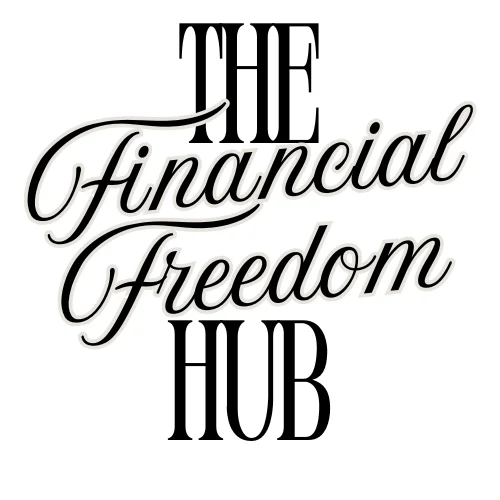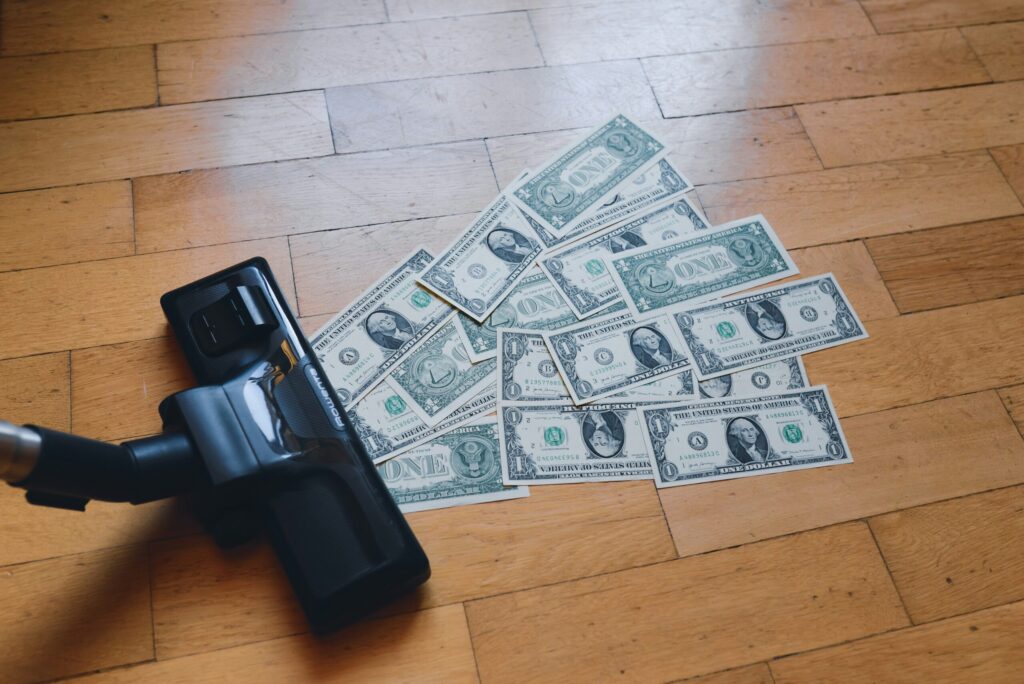Is debt always bad—or is it a powerful tool for building wealth?
If you’ve ever searched for personal finance advice, you’ve probably run into two very different voices: Dave Ramsey and Robert Kiyosaki.
When I finished dental school, I was a huge Dave Ramsey follower. Both are widely followed, incredibly persuasive, and give advice that sounds like it comes from completely opposite planets.
So what gives? And more importantly, who should you listen to?
👉 Rather watch the breakdown? I explain this entire debate and how it affects your financial freedom in the video below:
Don’t Miss Any Updates. Each week I’ll send you advice on how to reach financial independence with passive income from real estate.
Let’s walk through their different perspectives, along with real-world insight on how to apply their principles in today’s world of investing, credit, and debt.
The Two Giants of Financial Advice
Dave Ramsey: The Case for Living Debt-Free
Dave Ramsey built his entire reputation on one word: discipline. He believes debt is the enemy, no matter the kind. Whether it’s credit card debt, car loans, or even a business loan, his position is clear: eliminate it, avoid it, and never look back.
Ramsey teaches that your income is your most powerful wealth-building tool, and sending it out the door every month to make payments robs you of control over your financial future.
Debt Snowball
His method, like the popular Debt Snowball, is designed to help people gradually eliminate their balances until they achieve what he calls financial peace.
He’s helped thousands, maybe millions, of people break free from toxic debt cycles and take back control. But his approach is strict—and may not align with how every real estate investor, business owner, or financially savvy individual sees the world.
Related: A Dentist’s Take on Dave Ramsey’s Baby Steps
Robert Kiyosaki: Using Debt to Build Wealth
On the flip side, Robert Kiyosaki, author of Rich Dad Poor Dad, has a radically different take.
He often talks about using good debt to grow wealth. In fact, he claims to have over a billion dollars in debt, and says that’s a good thing. Why? Because that debt is tied to cash-flowing assets—primarily real estate investments.
Kiyosaki draws a clear line between bad debt, like consumer debt or credit cards, and good debt, which is money borrowed to invest in things like rental properties that generate passive income.
He argues that while poor dad thinking leads to playing it safe and working for money, rich dad thinking leads to making money work for you—through leveraged investing.
What’s the Real Difference?
At their core, the two philosophies are built for different people.
Ramsey’s advice
Ramsey’s advice works well for the average person struggling with bad financial habits or buried in credit card debt.
It’s a conservative approach, designed to create structure and security in your financial situation.
Kiyosaki’s advice
Kiyosaki’s method assumes you have (or are willing to gain) the financial literacy to manage rental properties, track cash flow, and analyze the rent-to-price ratio of potential investments.
In other words, he’s talking to someone who is ready to step onto the front lines of today’s investing world.
Join the Passive Investors Circle
Applying the Advice: When Should You Follow Each?
So how do you know which path to follow? Let’s look at a few real-world examples.
If you have:
-
Five credit cards maxed out and you’re living paycheck to paycheck…
→ Ramsey’s plan makes sense. Cut the cards, build an emergency fund, and eliminate debt fast.
If you have:
-
A steady income, specific goals for early retirement, and a desire to invest in real estate (like most of the dentists and doctors in my Passive Investing Group)…
→ Kiyosaki’s principles could help you scale through strategic leverage—if you’re ready to learn.
Even Kiyosaki admits that most people aren’t ready to manage large amounts of debt responsibly. In a recent post, he said:
“For most people with low financial acumen, Dave’s advice is the smarter advice. For the financially educated and experienced, my advice may be better.”
That’s an important distinction. If you’re not prepared with the tools—like a rental property calculator, quality property management, and solid off-market deal analysis—jumping into leveraged investing can backfire.
Real Estate: The Battleground of Debt Advice
Nowhere is this debate more visible than in real estate investing. Ramsey often says to pay off your home early. Kiyosaki says to leverage property to grow your portfolio and create passive income.
Related: Real Estate Syndication: The Accredited Investor’s Roadmap to Passive Income
In today’s exploding short-term rental (STR) market, it’s tempting to go all-in with borrowed money. But if you don’t do your market research, or if you get into a deal without built-in cash flow analysis, you’re putting your future at risk.
And make no mistake: real estate success is never guaranteed. Even Kiyosaki cautions against using debt on a bad deal. As he puts it:
“Debt used poorly becomes a liability. But debt used well becomes your greatest asset.”
The Tools That Can Help You Decide
There are now simple yet powerful calculators that can help you model whether a deal makes sense. These tools let you factor in:
-
Loan interest
-
Cash flow
-
Rent-to-price ratio
-
Long-term equity growth
Some platforms even offer unlimited access to real-time data and nationwide listings to evaluate specific properties before you invest. This kind of clarity is what separates a smart investor from someone just rolling the dice.
And if you’re using a business loan or mortgage, be sure you’ve planned your entire portfolio with reliable property management partnerships, proper insurance, and landlord protections in place.
So Who Should You Listen To?
Let’s recap.
Dave Ramsey
Dave Ramsey is the voice of discipline, safety, and simplicity. If you’re buried in student loan debt, swiping too many credit cards, or don’t fully understand investing, he offers a solid path forward.
Robert Kiyosaki
Robert Kiyosaki is the voice of leverage, strategy, and scale. If you’ve educated yourself, have cash in the bank, understand investment frameworks, and know how to evaluate a good deal, his approach might unlock another level of financial freedom for you.
The truth is, neither path is wrong—but neither is complete without self-awareness.
Final Thoughts: What’s Best for You?
Whether you lean toward Ramsey’s zero-debt lifestyle or Kiyosaki’s leveraged investing playbook, the most important thing is having a plan that fits your financial goals and risk tolerance.
Both strategies can work. Both can fail.
If you’re still unsure which way to go—or if you want to learn how to use good debt without falling into bad debt traps—subscribe to my Youtube channel.


